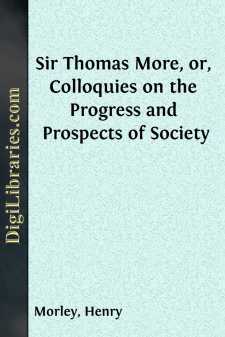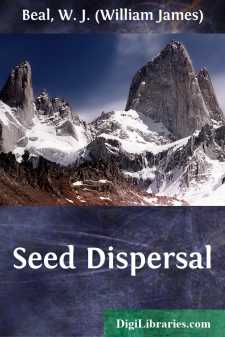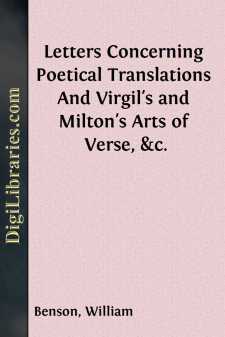Non-Classifiable
- Non-Classifiable 1768
Non-Classifiable Books
Sort by:
NATURE'S FINER FORCES One of the most common mistaken conceptions of the average student of the occult sciences, and of so-called "psychic phenomena" in general, is that which may be expressed by the term "supernatural." This term, as you know, is used to express the idea of "that which is outside of the realm of Nature, and of Nature's laws." Knowledge Versus Faith As...
more...
by:
William Morgan
MORGAN'S EXPOSE OF FREEMASONRY. Ceremonies of Opening a Lodge of Entered Apprentice Masons. One rap calls the Lodge to order; one calls up the Junior and Senior Deacons; two raps call up the subordinate officers; and three, all the members of the Lodge. The Master having called the Lodge to order, and the officers all seated, the Master says to the Junior Warden, "Brother Junior, are they all...
more...
by:
Dougan Clark
Entire Sanctification as Taught by John. John, before Pentecost, was emphatically a Son of Thunder. He could forbid a man to cast out devils in the name of Jesus, because the man was not of his own particular fold. He was ready to imitate Elijah by calling down fire from heaven to destroy the Samaritans who would not extend the rites of hospitality to his Master. He was eager to have the highest...
more...
CHAPTER I THE BASIS OF FREEDOM I Why should we fight for freedom? Is it not strange, that it has become necessary to ask and answer this question? We have fought our fight for centuries, and contending parties still continue the struggle, but the real significance of the struggle and its true motive force are hardly at all understood, and there is a curious but logical result. Men technically on the...
more...
by:
Walter Runciman
INTRODUCTORY It was a bad day for Spain when Philip allowed the "Holy Office" to throw Thomas Seeley, the Bristol merchant, into a dungeon for knocking down a Spaniard who had uttered foul slanders against the Virgin Monarch of England. Philip did not heed the petition of the patriot's wife, of which he must have been cognisant. Elizabeth refused the commission Dorothy Seeley petitioned...
more...
[Scene i] Enter Charles the French King, [Catherine] the Queene Mother,the King of Navarre, the Prince of Condye, the Lord highAdmirall, and [Margaret] the Queene of Navarre, with others. CHARLES. Prince of Navarre my honourable brother,Prince Condy, and my good Lord Admirall,wishe this union and religious league,Knit in these hands, thus joyn'd in nuptiall rites,May not desolve, till death...
more...
by:
Henry Morley
It was in 1824 that Robert Southey, then fifty years old, published “Sir Thomas More, or Colloquies on the Progress and Prospects of Society,” a book in two octavo volumes with plates illustrating lake scenery. There were later editions of the book in 1829, and in 1831, and there was an edition in one volume in 1837, at the beginning of the reign of Queen Victoria. These dialogues with a...
more...
by:
Joseph Harris
INTRODUCTION TO NEW AND ENLARGED EDITION. Sir John Bennet Lawes kindly consented to write a Chapter for the new edition of this work. The Deacon, the Doctor, the Squire, Charlie and myself all felt flattered and somewhat bashful at finding ourselves in such distinguished company. I need not say that this new Chapter from the pen of the most eminent English agricultural investigator is worthy of a very...
more...
CHAPTER I.HOW ANIMALS GET ABOUT. 1. Most of the larger animals move about freely.—When danger threatens, the rabbit bounds away in long jumps, seeking protection in a hollow tree, a log, or a hole in the ground. When food becomes scarce, squirrels quickly shift to new regions. Coons, bears, skunks, and porcupines move from one neighborhood to another. When the thickets disappear and hunters abound,...
more...
by:
William Benson
LETTER I. SIR, am now going to obey your Commands; but you must let me do it in my own way, that is, write as much, or as little at a time as I may have an Inclination to, and just as things offer themselves. After this manner you may receive in a few Letters, all that I have said to you about poetical Translations, and the resemblance there is between Virgil's and Milton's Versification, and...
more...











